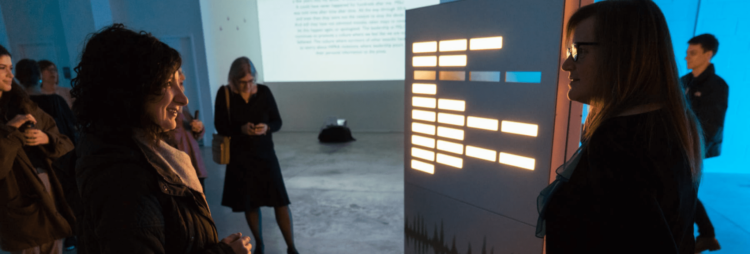
Originally published on Michigan State University News.
A poem by Associate Professor Nancy DeJoy, addressing the issue of silence in cases of sexual abuse and how the isolation and silencing of survivor voices is detrimental to the lives of survivors and to the community, will be exhibited December 4-12 at the Broad Art Lab in downtown East Lansing.
The poem, Illuminating Survivor Voices, which originated from survivor voices as important sources of culture change, will be displayed as an organic LED (OLED) light installation presented on a hollow metal frame filled with OLED panels and surrounded by 15 survivor statements that will be projected onto the walls and floor of the gallery. DeJoy, who is a member of the Department of Writing, Rhetoric, and American Cultures faculty, first got the idea for the project last spring when survivors expressed their frustration of not being listened to as agents for culture change.
“I decided to listen [to the survivors] myself and find a way to get their voices made public.” – Dr. Nancy Dejoy
“In the ways I’ve been trained to be an administrator, I would’ve normally gotten up and gone to higher-ups demanding they listen,” DeJoy said. “Instead, I decided to listen [to the survivors] myself and find a way to get their voices made public.”
As DeJoy spoke with survivors, she noticed their common need to be heard and the frustration they expressed by the silencing of their voices. This need for active listening transformed into a Google document where survivors were invited to share their thoughts on dealing with sexual assault with the option of anonymity.
The Illuminating Survivor Voices display will highlight the fact that survivors are more than just accusers who aid in the prosecution of their abusers. Although the prosecution of an abuser is a vital piece to reaching justice, oftentimes survivor voices are isolated only in that particular moment. Illuminating Survivor Voices addresses the need for justice beyond the courtroom, particularly on how we can value survivor voices as change agents who alter how our culture deals with sexual assault.
“My hope is that the project will inspire people to listen to survivor voices in a new way and in relation to culture change and what we can do to make things better,” DeJoy said. “I also hope that it might inspire people to do [activist] work in different, more artistic ways. I hope that museums and galleries will notice their role in social justice and work to make their spaces more inclusive.”
The Illuminating Survivor Voices installation, which was funded by a College of Arts & Letters Summer Faculty Fellowship, will serve as a catalyst for cultural shifts because of its public placement and challenging stance on how institutions deal with survivor voices.
“My hope is that the project will inspire people to listen to survivor voices in a new way and in relation to culture change and what we can do to make things better.” – Dr. Nancy DeJoy
“The arts have always been an alternative space for people to say things that normally wouldn’t be listened to in other ways,” DeJoy said. “Poetic language allows me to say things in a way that might be easier for people to listen to or interpret from their own experiences.”
Both the Lansing Media Center and OLEDWorks have been involved with the project, with the Lansing Media Center donating the projectors and OLEDWorks helping with the cost and installation of the OLED lights, which were chosen deliberately for their physiologically calming nature.
“Professor DeJoy’s poem is a beautiful and important reflection of the responsibility to trauma survivors,” said Giana Phelan, Director of Business Development at OLEDWorks. “OLEDWorks is honored to provide support with a lighting experience that both draws the reader in and commands a call to action – Listen.”
The opening of the Illuminating Survivor Voices exhibit is scheduled for Tuesday, December 4, from 4:30 to 6:30 p.m. at the Broad Art Lab, 565 E. Grand River Avenue. Refreshments will be provided by Soup Spoon Café. The exhibit is free and open to the public.
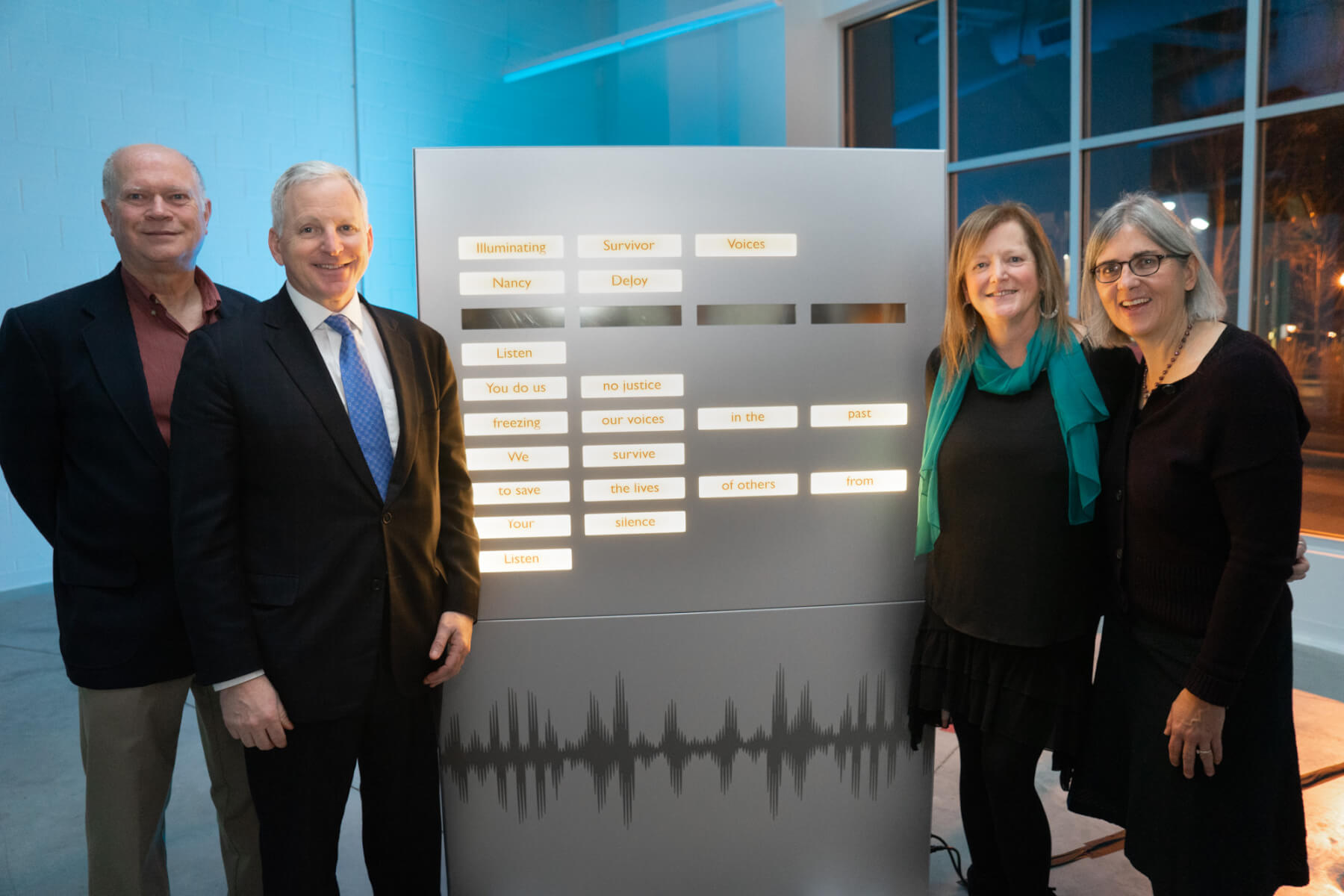
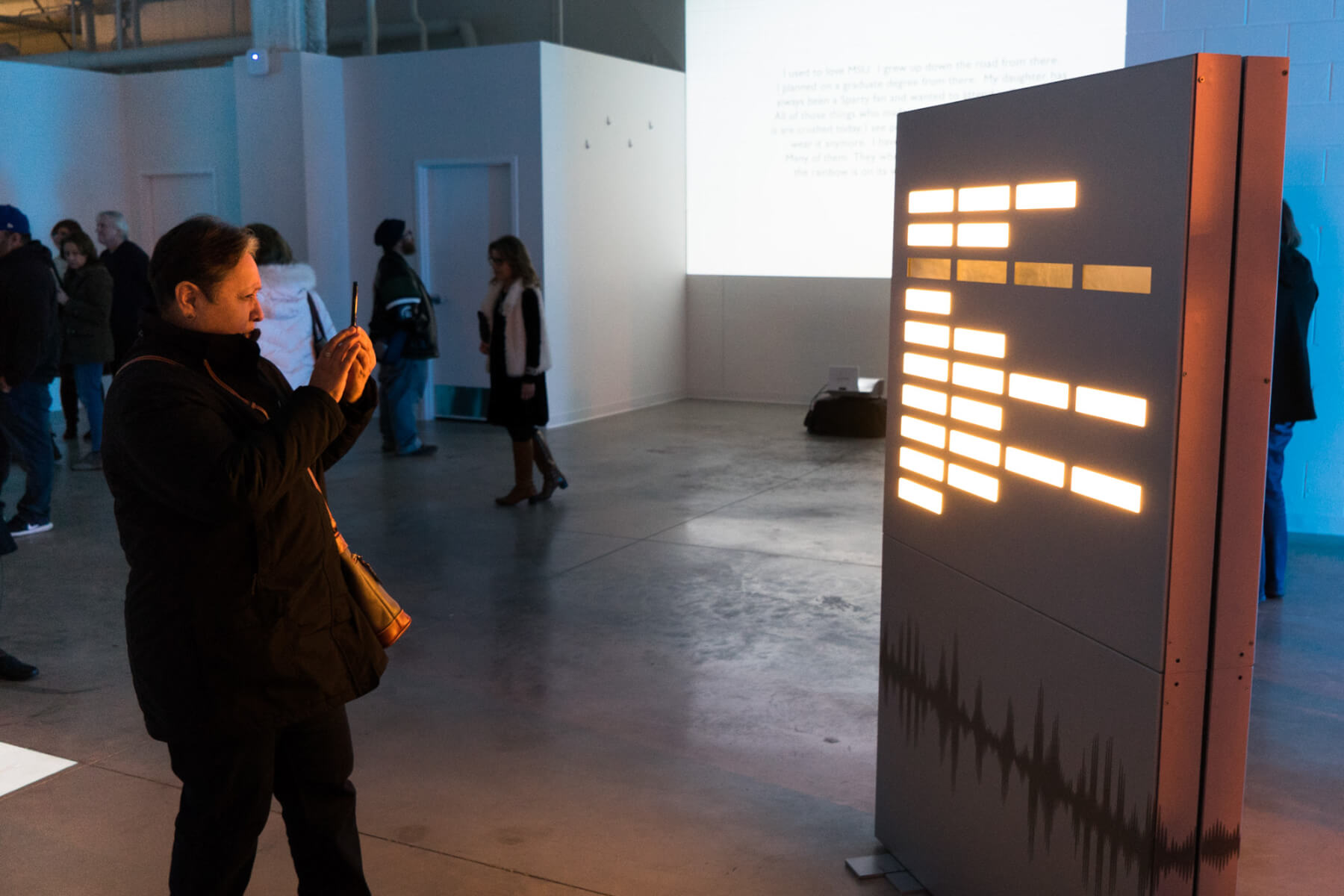
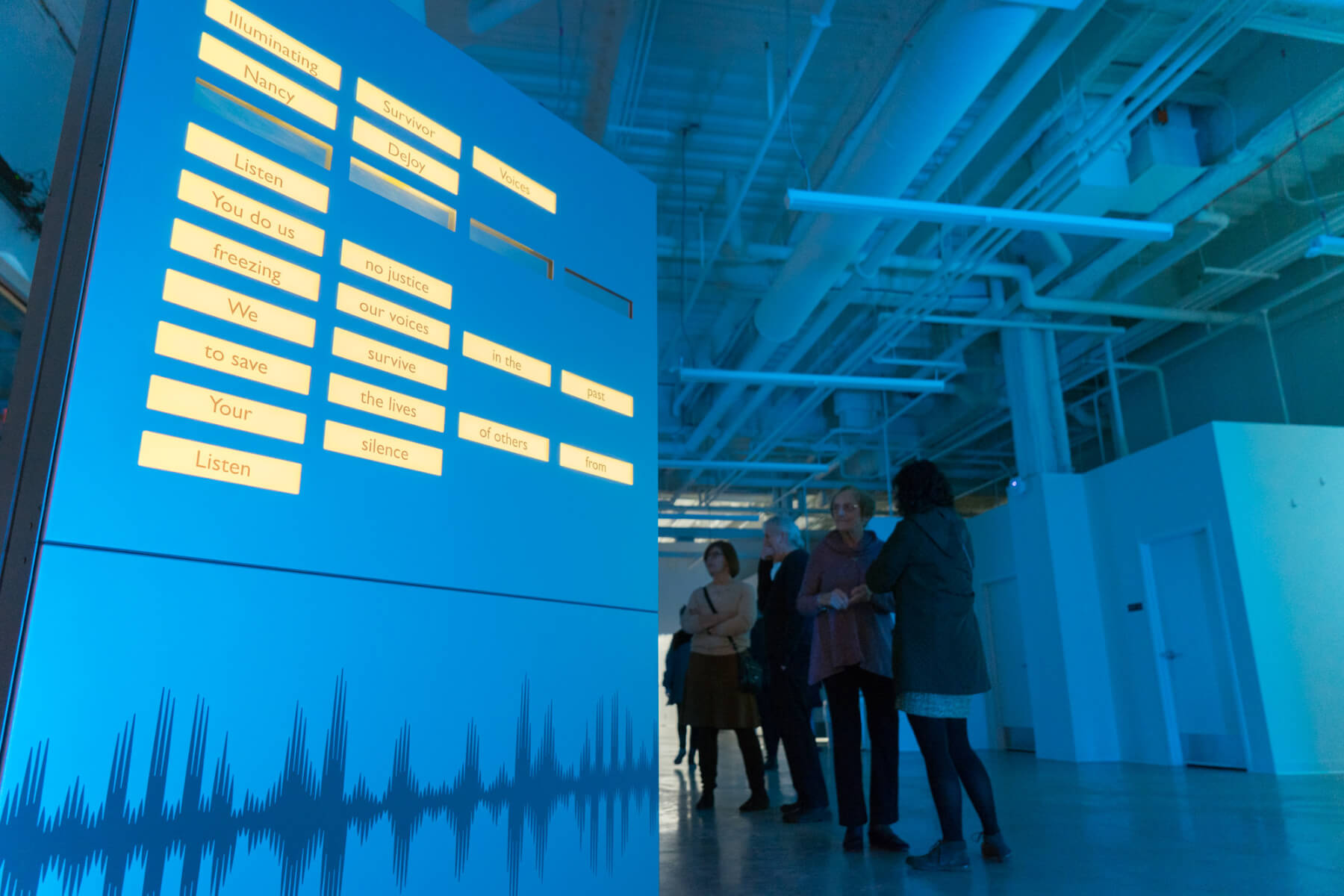
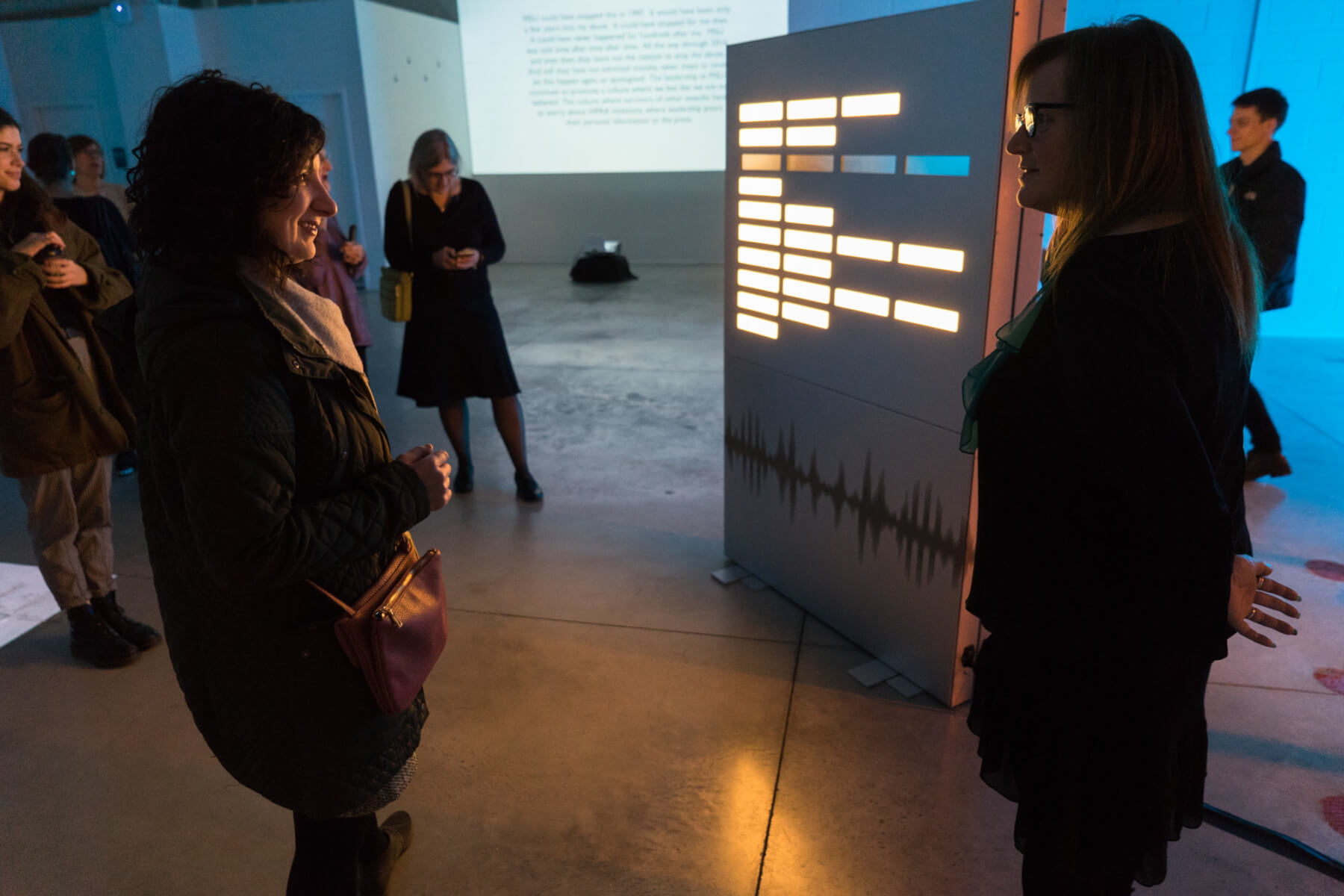
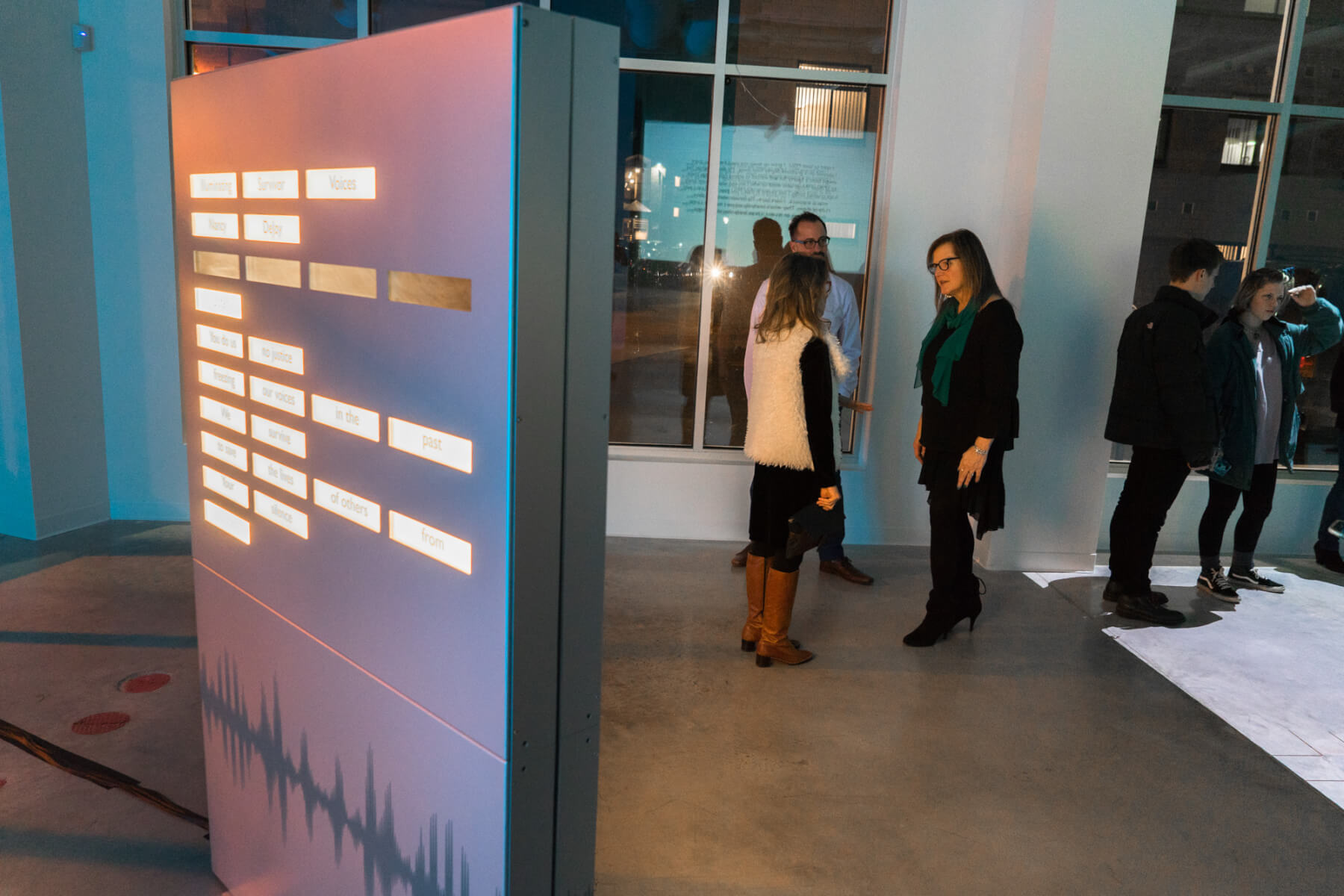
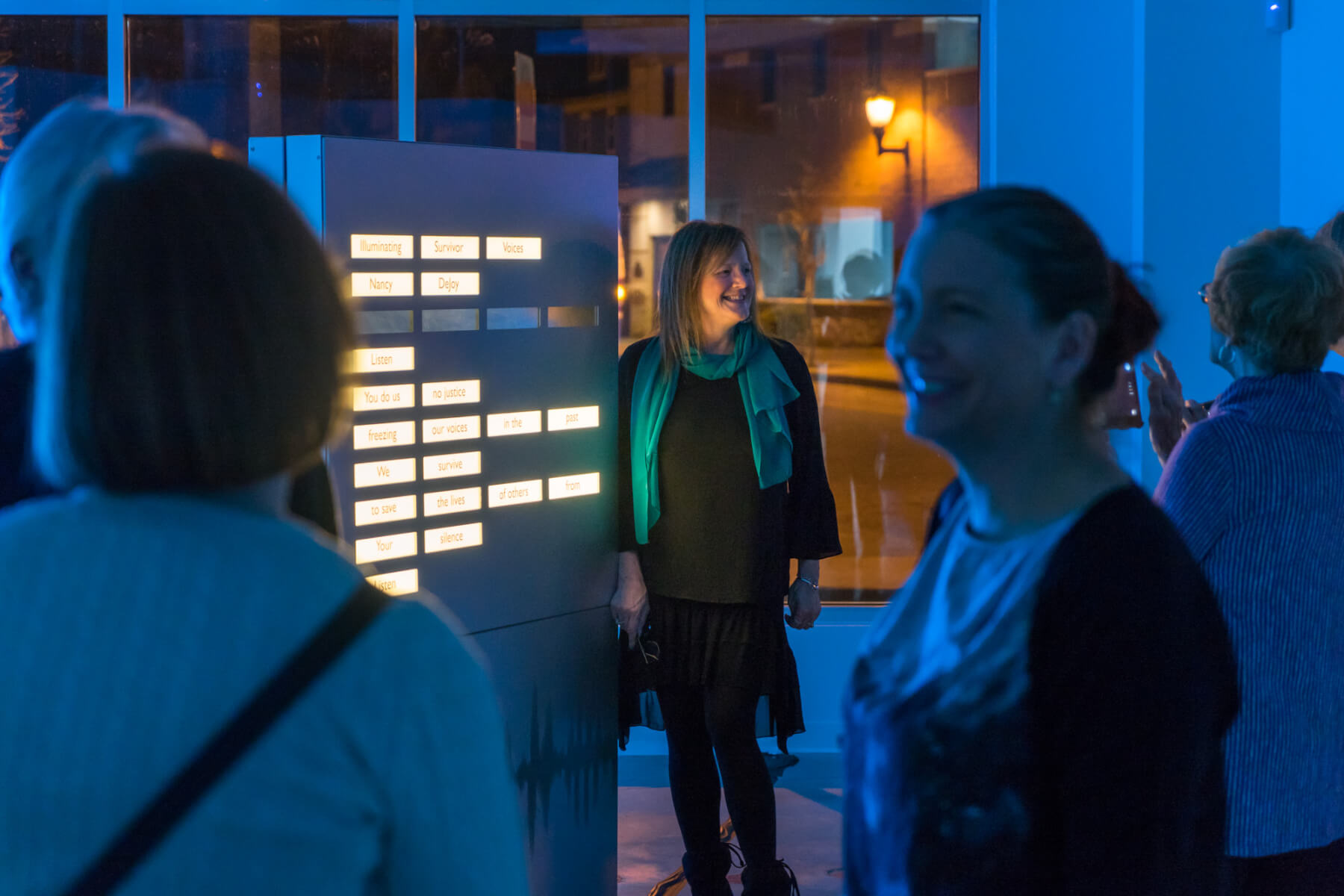
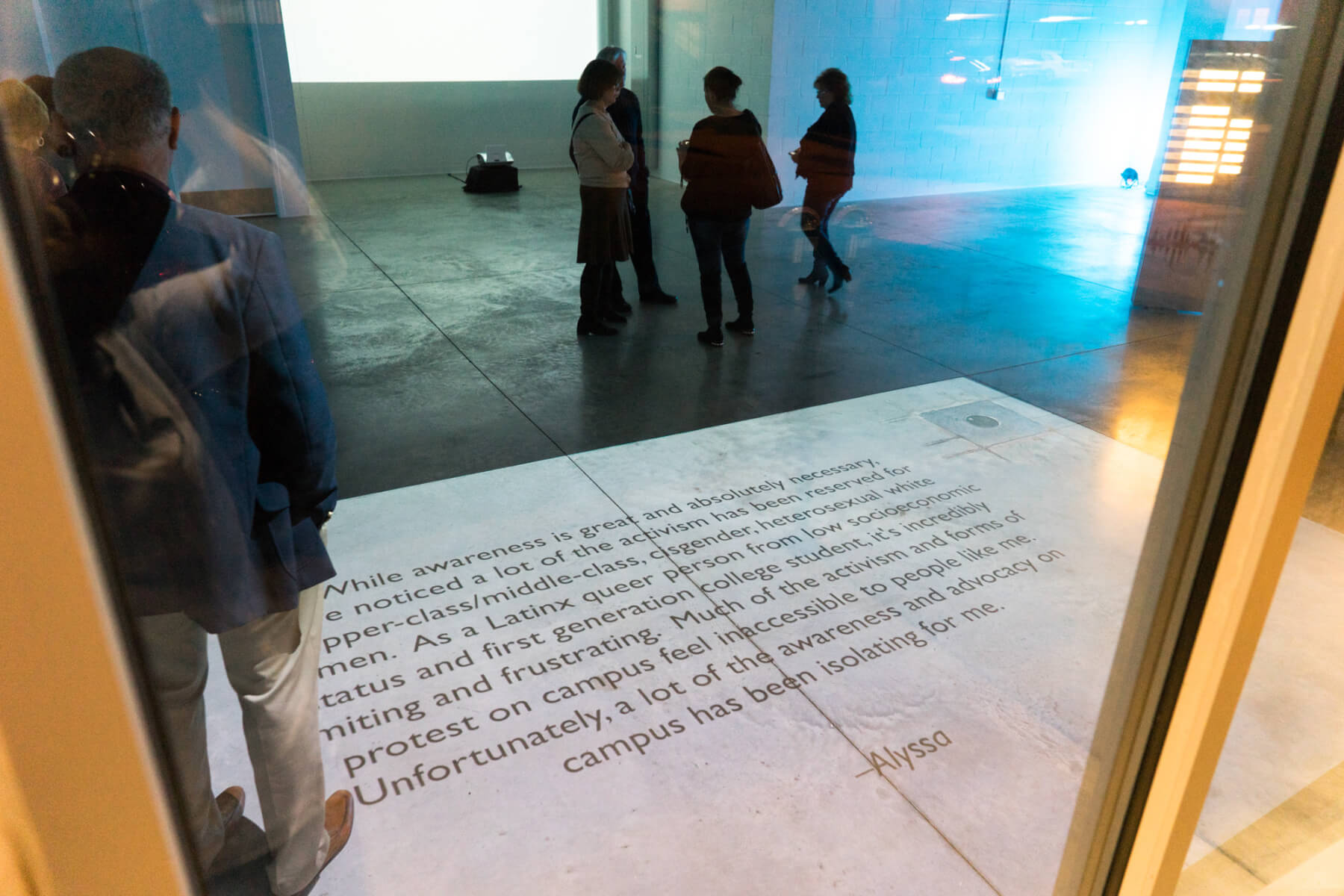
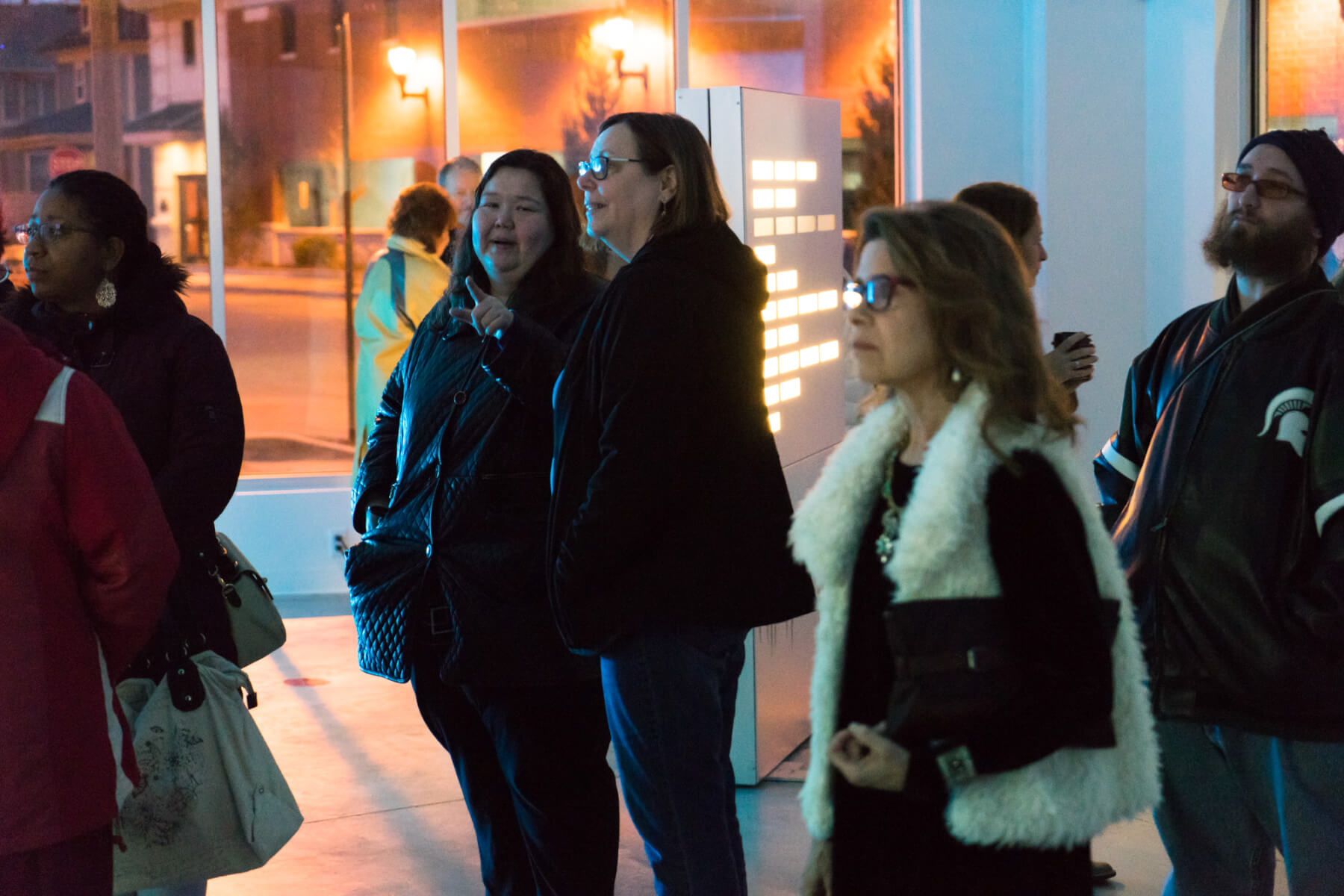
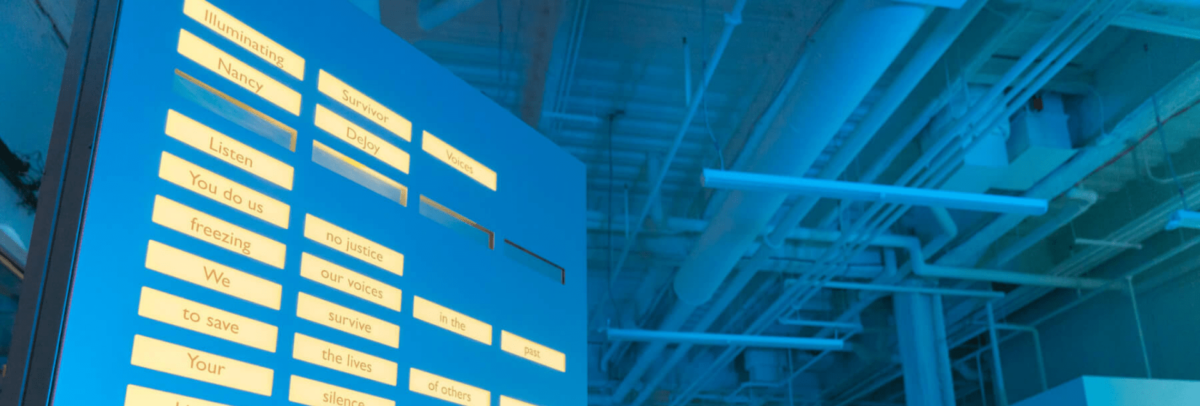

![[eBook] How OLED is Healthy Light for Our Well-Being](https://www.oledworks.com/wp-content/uploads/2020/08/top-banner-image-blog-page-healthy-ebook-750x254.jpg)
